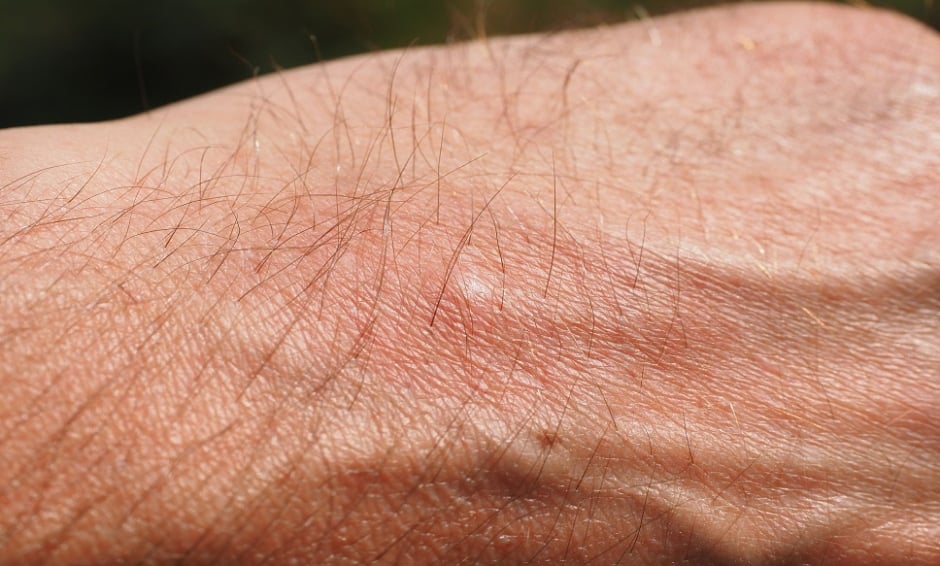RISK of psoriasis is up to 30% contributed to by the diet and lifestyle of individuals genetically predisposed to the disease, according to a study presented at the Psoriasis: From Gene to Clinic International Congress, which took place in London, UK from 30th November–2nd December 2017.
Psoriasis Risk Gene
It has previously been unclear why T cells become overactive and attack melanocytes, which induce a growth of psoriatic plaques. However, the same researchers discovered in an earlier study that melanocytes are attacked in psoriasis patients who have the psoriasis risk gene, HLA-C*06:02, due to the reaction against a certain peptide. People with this allele are between 9 and 23-fold more likely to develop the condition than those without an allele linked to psoriasis onset.
Environmental Triggers
As amino acid patterns trigger T cell immune reactions, the researchers wanted to discover whether peptides found in the external environment, such as in certain foods, with the same amino acid pattern as the peptide in melanocytes, triggered a similar reaction to that which causes psoriasis. It was found that such a reaction was brought about by a variety of peptides in proteins from foods including wheat, apples, spinach, and coffee, the chlamydia bacterium, and human skin and gut microbiomes.
One of the authors, Dr Jörg Prinz, Ludwig-Maximilians-University of Munich, Munich, Germany, commented: “The aim of our study was to get a better understanding of the factors at the molecular level that translate the genetic predisposition for psoriasis into the actual manifestation of the disease. Essentially, why do only some of the people who have a genetic tendency towards psoriasis have it, whilst others don’t? Our results show that lifestyle factors may be important.”
Individualised Prevention Strategies
Through identifying environmental factors that trigger psoriasis, individualised prevention strategies for the disease could be developed in the future, although these triggers would first need to be verified in clinical practice.
Dr Prinz added: “These results provide initial evidence that environmental factors may serve as potential triggers for this specific autoimmune response in psoriasis. It may also have implications in understanding how environmental factors affect the risk of autoimmune diseases in general.”
James Coker, Senior Editorial Assistant







